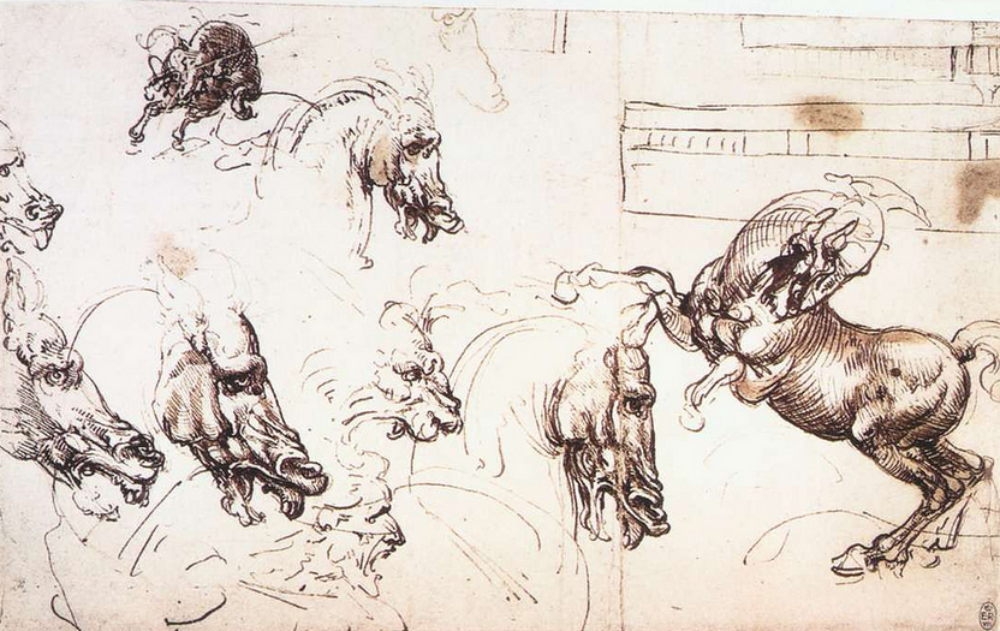
I’ve heard from many readers how useful they found Advice to a Student, which lays out an extremely demanding regimen for someone thinking about pursuing a first job in management consulting. This piece tries to answer a parallel question: what are the disciplines that, applied well, will help an intern in any field get the most out of his or her experience?
1. Treat each task lovingly. More than anything, internships are an opportunity to begin to build craft. Think of your tasks as small pieces of work that play a peripheral role in supporting a broader objective.
Building craft involves seeing a certain kind of beauty in the smallness of the task and asking how to really do it well. If you are writing up the results from a web search, for instance: What does a really good write up look like? What questions should it answer? Should it be focused and to the point, or generative and expansive?
At the same time, spend time situating the task in its broader context. What is your manager trying to do? Why are they focused where they are? Where does his or her objective fit into the broader strategy of the organization? What does success in the broader work look like three months or six months down the road, and how will our work now impact these outcomes?
One of the inevitable outcomes of asking these kinds of questions will be realizing how little one knows about the answers. That’s in many respects the point! While you can press forward on the task by making your best guess, don’t be satisfied with not knowing. Look for chances to ask questions, to piece together clues from what you see, and importantly, not to assume that all the answers you get really make sense. People may well be doing things in ways that don’t fully make sense. Always try both to understand why the world looks the way it does to each of the people around you (how would X make sense?) and how the world might be different from the way others see it (what if Y weren’t how we go about things here).
2. Visualize, do, reflect. It is easy for interns to alternate between a hectic doing and bored not-doing, which leads to a lower quality of work and dramatically slows down the pace of learning. Before every task you undertake, try to visualize how it will go. What you will do first, and what path will follow from there? How long will the steps take? What inputs do you need? What will be most challenging? What will the final product look like?
Along the way, notice, if you can, where things are unfolding differently from what you envisioned. You don’t need to bring things back to the way you’d pictured – you can or not, but either way, try to notice. At the end of the task, briefly reflect. What was like your visualization, and what wasn’t? What can you learn from these differences? How would these learnings impact what you’d do next time on a task like this?
This discipline is just like what one would do in athletics or the performing arts. Before running a play on the football field or performing a violin concerto, one forms a mental image of how the flow of performance will go. Rehearsal strengthens form.
In business, there isn’t always such a clear boundary between rehearsal and performance. The people who advance fastest in business tend to treat almost everything they do as both performance and rehearsal: significant in terms of its direct results, but also a rehearsal for the many more times one will undertake similar work. Generally, the aspect of rehearsal is the more important one. It is almost always of greater value to get better faster than it is to produce the best result today.
3. Connect omnivorously. An internship is the best possible platform for building a network. As an intern, you have all the allure of eligibility with none of the stigma sometimes attached to not having a job. Make a long list of the kinds of people it might be useful to meet, identify the “slots” in which you can meet people (for breakfast, after work, coffee on weekends, at events, etc.) and set a goal to have a certain number of exploratory meetings over the course of the summer – thirty is probably a good target for most people, which is three a week over a ten-week internship. This list should not just include co-workers and more senior people in the company where you’re interning, but should reach further afield –
- People who play a different role in your current industry
- People who work for other companies you’re interested in exploring for your next role
- Graduates two to five years ahead of you on the track you’re taking who can share their experiences
- People who are mentoring your friends and may be willing to invest in meeting you
For each meeting, think about how to frame the conversation, what you’d like to learn, what you can offer, and how to follow up. Learn to write very specific thank you notes, in which you call out at least two particular moments in the conversation that were meaningful to you and say what you’re going to do as a result. The more you show the people you meet with that there’s a return from the time that they spend with you – not necessarily concrete business value for them, but concrete impact in terms of the contribution they’re making to you – the more they’ll feel invested in your success. Most importantly, this skill of feeling and communicating gratitude is as important as anything else you could possibly learn during your internship.
My friend Keith Ferrazzi’s book Never Eat Alone should be required reading for all interns in all fields. Whatever your feelings about eating alone – personally something I very much enjoy! – don’t wait until the end of the summer to read it.
4. Build habits. To quote Will Durant’s pithy summation of Aristotle: “We are what we repeatedly do. Excellence is not an act, but a habit.” You’ve built one set of habits to navigate student life. Now it’s time to hone the habits that will make you extraordinary in the world of work.
Put real work into figuring out what those extraordinary habits would be, and begin to build them. In service of this goal, ask the people you most respect at work about their daily routines. How do they make time for concentration? How do they get ideas? How do they polish and proof their work? How do they answer email and track the things they need to do? Learn about the habits of people you admire from history – Mason Currey’s Daily Rituals, for instance, is a wonderful compilation of routines from artists and writers. David Allen’s Making It All Work is the book that’s most influenced how I organize and manage my own time.
We aren’t born knowing how to create habits well – this too is an art. Perhaps the person who has thought most about how habits can be formed, how they can be broken and why forming the right ones matters so much is Charles Duhigg, whose book The Power of Habit is worth many times the investment.
5. Seek joy. For all the value of the other elements an internship can bring – experience, knowledge, credibility, connections, the opportunity to build skills, a gateway to a full-time job – the greatest value it brings is information about what you’re likely to love doing. You’ll spend so many of your waking hours in the years to come at work; making the best choice of what work you do and where you do it will shape your happiness as much as any choice you make except whom to spend your life with.
In this spirit, deliberately run an experiment of trying to find joy in the work you’re doing as an intern. Don’t just ask yourself whether you are experiencing joy – try to look at the work you’re doing joyfully. Of course, don’t expect that every moment will feel this way, but some should. If they don’t, genuinely ask why. Is it something about the job itself? Is it something about how you experience certain things about work, which you’d like to change (which perhaps brings you back to the question of habits, inner ones)? What pattern can you discern that might inform the question of what you do next, whether it is a direct step from the internship or a leap in a new direction?
Even if you prioritize experiencing joy in your work less than I’m suggesting you might, recognize that these questions matter for your long-term success. If you can become 15% better and 15% more valuable every year, your value doubles twice a decade. At a 20% rate of improvement, your value doubles almost three times a decade (100x in just over 25 years). The people who are the best in their field in their forties are generally people who have managed this kind of exponential trajectory – or better – over the very long term.
In some fields, like finance, law and executive management, progress might look to the world like this kind of steady exponential arc. In other fields, like entrepreneurship or entertainment, progress can look like a sudden flowering – but the same exponential dynamic of how people get better still exists underneath the spikier nature of how businesses or books or songs catch on. If you look closely at the career of Larry Page or Jay-Z, you’ll see the same underlying continuity of exponential improvement as you’ll see looking at Warren Buffett or Jack Welch, even if expressed in a very different form.
Few people can improve at this rate for very long without intrinsic love of what they’re doing, and without experiencing a sense of what’s beautiful in their field that guides their work. Attention early to what work you can experience joy doing will repay exponentially over the years to come.
If you’ve found this advice helpful, you might also enjoy my series on Becoming the Perfect Instrument, a synthesis of some of the thinking that has most influenced me on doing the right work at the highest level of achievement. I wish you success over the balance of the summer; at least a measure of joy; and enough of the right difficulties for you to grow into your dreams – or to grow into having new dreams.



